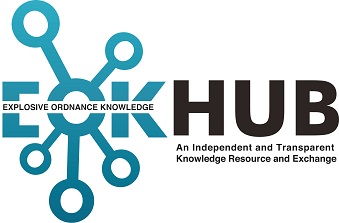Policy @EOKHUB
Dear Reader,
Welcome to our policy page. Here you will find an increasing number of articles featuring discussions on policy varying from how best to use dogs in conjunction with drones, to the determination of appropriate clearance depth.
Policy should serve, and originate in, the impacted area. Nonetheless, examples from other regions in the world can prove useful.
At EOKHUB we strive to provide a diversity of subjects and view points to stimulate discussion and broaden the understanding of policy tools available. Additionally, we seek to further the concept that policy is not simply something mandated top-down, it can also be affected at the grassroots level. Topics appearing here will fall within this spectrum. They may also at times seem contradictory. An example:
There is a moral obligation incumbent upon States to clear every landmine on its territory.1 This obligation has been elaborated, tweaked, refined and sometimes re-defined. When it comes to the broader spectrum of Explosive Ordnance (such as Cluster Munitions, small arms amunition, or deeply buried bombs), the issue becomes legally more complex, but remains ethically the same -- a State has an obligation to protect its citizens. How best to do so remains the essential point of contention.
Let us take the example of Residual Risk, alternatively known as Residual Contamination. It is safe to assume that even after the application of all reasonable effort there still exists the possibility that in some location, at some depth, a certain munition may remain undiscovered and continue to pose a risk. Other authors have dealt with this more extensively, notably at the GICHD and at the Journal for ERW and Mine Action.2 Does this risk continue to demand the same level of moral obligation as did the initial clearance of known minefields, for example?
From a top-down policy level, I argue the answer is "yes" though I agree that the implementation of this moral obligation is different than in the first case. If a State has an obligation to protect the health and safety of its citizens, this mandate extends beyond munitions, to include factors such as traffic safety, water sanitation and hygiene, and above all, social determinants of health (education chief among them). The allocation of resources to competing causes means that the manifest risk posed by the remaining munition is weighed against risks such as malaria, traffic accidents, and lack of education.
From a grassroots level, professionals in the EO sector must continue to do their jobs to the highest standards. However, as response to an emergency situation winds down, responsibility for responding to EO discoveries often naturally transfers from active NGOs and international operators to nationally-owned competencies. This looks different in each context: military, civil service, or police are example parent entitites for EO response units. NGOs and international operators have an obligation to consider how this transition will be most effective in their environment. They are, afterall, closest to the action. The critique to transitioning to a "residual state" is swift and loud, often implying that governments are forsaking their obligation under certain conventions, that donors are pressuring governments to do so simply to shirk an expensive ongoing effort, or that certain companies are acting to undermine the financial interests of others.
The result should be a discourse on when, how, and to whom responsibility should be transferred as NGOs recede from their primary role. But we shouldn't confuse the often heated discussions on how this should happen, with a broken system. Active dialogue is necessary to ensure all views are heard and tailored decisions are made. Don't shy away from policy discussions. In the end, policy is simply how we all live and work together.
1The APMBC refers to "all reasonable effort" as well as a "clear state."
2See work by Asa Massleberg, Robert White, Samuel Paunila and others.


